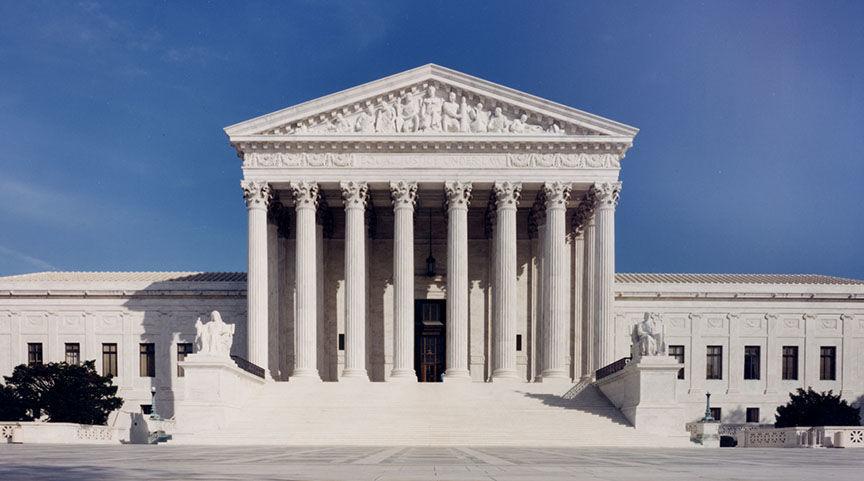The Supreme Court ruled that the Trump administration could not terminate the Deferred Action for Childhood Arrivals (DACA) on June 18.
According to The Washington Post, President Trump was stunned when US Chief Justice John G. Roberts Jr. came back with the decision to dismiss Trump’s attempt to terminate DACA. President Obama first enacted DACA in 2012 to protect the children brought to the United States by their parents when they were young, and had no say in the matter according to the Los Angeles Times. These children, nicknamed DREAMers for the Dream Act that instituted DACA, have been nervously waiting months for the results from the Supreme Court. Now, amid the pandemic, the Supreme Court has made a decision in favor of continuing DACA.
Huyen Pham, a Texas A&M law professor who specializes in immigration law, watched the Supreme Court decision and how President Trump attempted to rescind the program closely.
“I believe in September he formally terminated the program. It was one of his big campaign platforms,” Pham said. “He wanted to terminate the DACA program, and there have been a series of legal challenges. Both cases were combined and appealed up to the Supreme Court.”
The Supreme Court took months listening to arguments and deliberating the decision before coming to the 5-4 decision in favor of the program. Pham said the reason the Supreme Court came to this decision did not have to do with the program itself, but the way President Trump attempted to terminate the program.
“Basically, the Supreme Court, in this 5-4 decision, said ‘You did not give a good explanation, you did not look at all the relevant factors,’” Pham said. “‘We’re going to reverse the decision that you make to terminate.’”
President Trump terminated the DACA based on several factors of administrative law, as is customary with federal agencies when dealing with the legality of a program, Pham said. She said that with DACA, President Trump needed to give a valid reason for the termination.
“The reason that the Trump administration gave when it issued the termination in September 2017, was [that the Obama administration] did not have the authority to create the program,” Pham said. “[The Trump administration stated] the program itself was illegal. That got challenged all the way up. There have been cases in different circuit courts and then it was consolidated and argued up to the Supreme Court.”
Pham said the Supreme Court ruled President Trump’s reasoning insufficient. However, the Supreme Court also offered a path for Trump if he continues to seek the termination of the program.
“This is not something the court said, but the administration can try again. It can terminate the program again but it has to give reasons that are valid and complete,” Pham said.
Sociology junior Sofia Chunga Pizarro said she was relieved after receiving the news about the Supreme Court decision. Her family is from Piura, Peru, and moved to the United States when she was three. She spent a few months in Los Angeles before her family settled in College Station.
“It was the best case scenario even though it’s not the full extent of what we want to accomplish. People who have DACA are definitely relieved,” Chunga Pizarro said. “It was really interesting, I became stressed the day before. It became more stressful because there were only two or three more days the Supreme Court could decide on it, and I started getting more anxious.”
Chunga Pizarro has been a member of DACA since she was sixteen, and spent time in D.C. during the oral arguments concerning the DACA case in Nov. 2019.
“I was able to be in Washington, at the Supreme Court to see when the first oral arguments were being heard,” Chunga Pizarro said. “I also got to go inside the room, inside the Supreme Court room and saw all the Justices and them talking about the case. It was a really interesting experience.”
Because this Supreme Court ruling does not prohibit Trump from attempting to terminate DACA again, Chunga Pizarro said this win for DACA is just the first step for immigrants.
“DACA is the tip of the iceberg when it comes to immigration reform,” Chunga Pizarro said. “There is just so much we can do for undocumented citizens in this country and undocumented people in this country. Just because we got a victory does not mean we are going to stop fighting. There is so much more we need to get done.”
Supreme Court rules in favor of DACA in 5-4 vote
June 30, 2020
Photo by Creative Commons
Supreme Court
0
Donate to The Battalion
Your donation will support the student journalists of Texas A&M University - College Station. Your contribution will allow us to purchase equipment and cover our annual website hosting costs.
More to Discover









